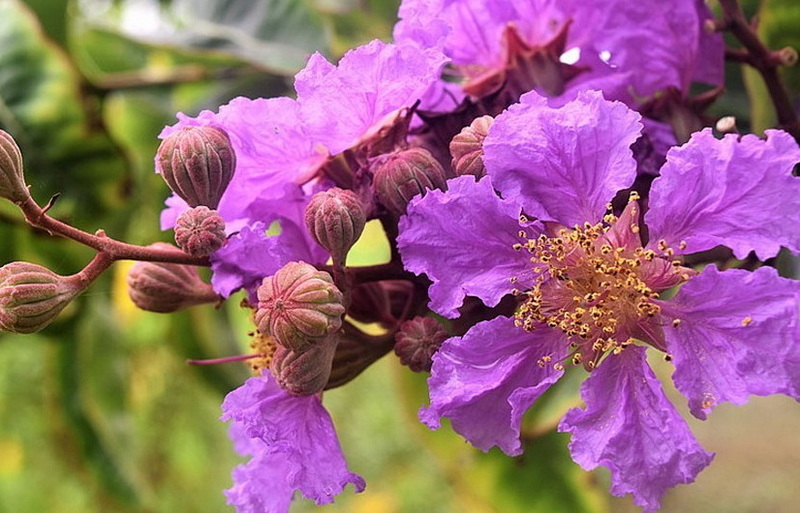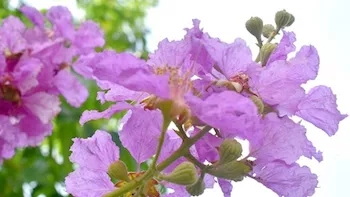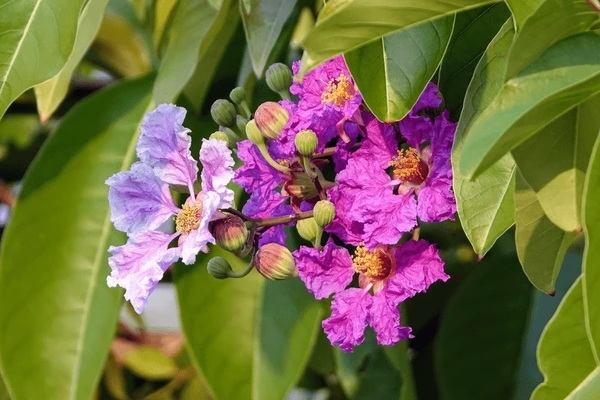Content Menu
● Introduction to Banaba Leaf Extract
>> Corosolic Acid: The Key Component
● Scientific Evidence Supporting Banaba Leaf Extract
>> Animal Studies
>> Human Trials
● Mechanisms of Action
● Safety and Side Effects
● Comparison with Other Natural Supplements
>> Berberine vs. Banaba Leaf Extract
>> Cinnamon vs. Banaba Leaf Extract
● Potential Benefits Beyond Diabetes Management
● Conclusion
● Frequently Asked Questions
>> 1. What are the active compounds in Banaba leaf extract?
>> 2. How does corosolic acid lower blood sugar levels?
>> 3. Is Banaba leaf extract safe for long-term use?
>> 4. Can Banaba leaf extract replace conventional diabetes medications?
>> 5. What is the recommended dosage of Banaba leaf extract for diabetes management?
● Citations:
Banaba leaf extract, derived from the plant Lagerstroemia speciosa, has been traditionally used in Southeast Asia, particularly in the Philippines, for managing diabetes. This natural supplement is gaining attention globally due to its potential benefits in lowering blood sugar levels and improving insulin sensitivity. In this article, we will delve into the scientific evidence supporting the use of Banaba leaf extract as a natural supplement for diabetes management.

Introduction to Banaba Leaf Extract
Banaba leaf extract is rich in bioactive compounds such as corosolic acid, ellagitannins, and gallotannins. These compounds are believed to contribute to its antidiabetic effects by enhancing glucose uptake in cells, inhibiting the digestion of carbohydrates, and regulating lipid metabolism.
Corosolic Acid: The Key Component
Corosolic acid is often highlighted as the primary active ingredient responsible for the hypoglycemic effects of Banaba leaf extract. It has been shown to decrease blood sugar levels within 60 minutes in human subjects. Corosolic acid works by increasing insulin sensitivity and enhancing cellular glucose uptake, which helps in managing blood glucose levels effectively.
Scientific Evidence Supporting Banaba Leaf Extract
Numerous studies have investigated the efficacy of Banaba leaf extract in managing diabetes. These studies include both animal models and human trials.
Animal Studies
Animal studies have consistently shown that Banaba leaf extracts can significantly reduce blood glucose levels in diabetic models. For instance, a hot water extract of Banaba leaves decreased elevated blood glucose levels in streptozotocin-diabetic rats by about 43%. Additionally, Banaba extracts have been found to improve insulin sensitivity and lipid metabolism in genetically diabetic mice.
Human Trials
In human studies, Banaba leaf extract has demonstrated promising results. A small clinical trial involving type 2 diabetic patients showed a significant reduction in blood glucose levels after administering a standardized extract containing corosolic acid. Another study reported a 16.6% decrease in fasting blood glucose levels over a year with a water-soluble Banaba extract.

Mechanisms of Action
The antidiabetic effects of Banaba leaf extract are attributed to several mechanisms:
1. Enhanced Cellular Glucose Uptake: Corosolic acid increases insulin sensitivity, facilitating glucose entry into cells.
2. Inhibition of Carbohydrate Digestion: By inhibiting alpha-glucosidase, corosolic acid slows down the digestion of carbohydrates, reducing postprandial blood glucose spikes.
3. Regulation of Lipid Metabolism: Banaba extracts influence lipid metabolism, which is beneficial for managing metabolic syndrome.
Safety and Side Effects
Banaba leaf extract is generally considered safe with minimal side effects reported. However, some users may experience gastrointestinal issues such as loose stools.
Comparison with Other Natural Supplements
Banaba leaf extract is often compared with other natural supplements like berberine and cinnamon for diabetes management. While berberine has shown significant glucose-lowering effects, Banaba leaf extract offers a more rapid onset of action due to corosolic acid. Cinnamon also has antidiabetic properties but may not be as potent as Banaba extract in enhancing insulin sensitivity.
Berberine vs. Banaba Leaf Extract
Berberine is known for its sustained glucose-lowering effects, but it may require longer-term use to achieve optimal results. In contrast, Banaba leaf extract can provide quicker benefits, making it suitable for managing acute blood glucose spikes.
Cinnamon vs. Banaba Leaf Extract
Cinnamon has been traditionally used to reduce blood sugar levels, but its effects are generally milder compared to Banaba leaf extract. Cinnamon may be more beneficial for reducing inflammation and improving cardiovascular health.
Potential Benefits Beyond Diabetes Management
Banaba leaf extract may offer additional health benefits beyond diabetes management, including:
1. Antioxidant Properties: Banaba extracts have antioxidant properties, which can help protect against oxidative stress and inflammation.
2. Cardiovascular Health: The lipid-regulating effects of Banaba leaf extract may contribute to improved cardiovascular health by reducing triglycerides and LDL cholesterol.
3. Weight Management: Some studies suggest that Banaba extracts could aid in weight loss by influencing lipid metabolism and reducing fat accumulation.
Conclusion
Banaba leaf extract offers promising benefits for diabetes management due to its ability to lower blood sugar levels and improve insulin sensitivity. While it is not a replacement for conventional diabetes treatments, it can be a useful adjunctive therapy. Further research is needed to fully understand its potential and optimal dosing.

Frequently Asked Questions
1. What are the active compounds in Banaba leaf extract?
Banaba leaf extract contains several bioactive compounds, including corosolic acid, ellagitannins, and gallotannins, which contribute to its antidiabetic effects.
2. How does corosolic acid lower blood sugar levels?
Corosolic acid lowers blood sugar levels by increasing insulin sensitivity, enhancing glucose uptake in cells, and inhibiting the digestion of carbohydrates.
3. Is Banaba leaf extract safe for long-term use?
Banaba leaf extract is generally considered safe, but long-term studies are limited. Common side effects include gastrointestinal issues like loose stools.
4. Can Banaba leaf extract replace conventional diabetes medications?
No, Banaba leaf extract should not replace conventional diabetes medications. It can be used as an adjunctive therapy under medical supervision.
5. What is the recommended dosage of Banaba leaf extract for diabetes management?
The recommended dosage varies, but typical ranges include 16 mg to 500 mg of standardized extract per day. Consult a healthcare provider for personalized advice.
Citations:
[1] https://pmc.ncbi.nlm.nih.gov/articles/PMC3468018/
[2] https://citeseerx.ist.psu.edu/document?repid=rep1&type=pdf&doi=6d9608112538499efdfda645b6b0859e510f23a5
[3] https://www.mdpi.com/2079-7737/13/12/1047
[4] https://www.healthline.com/nutrition/banaba-leaf
[5] https://pubmed.ncbi.nlm.nih.gov/22095937/
[6] https://www.drugs.com/npp/banaba.html
[7] https://www.jstage.jst.go.jp/article/jisdh/17/3/17_3_255/_article/-char/en
[8] https://pubmed.ncbi.nlm.nih.gov/23082086/






























